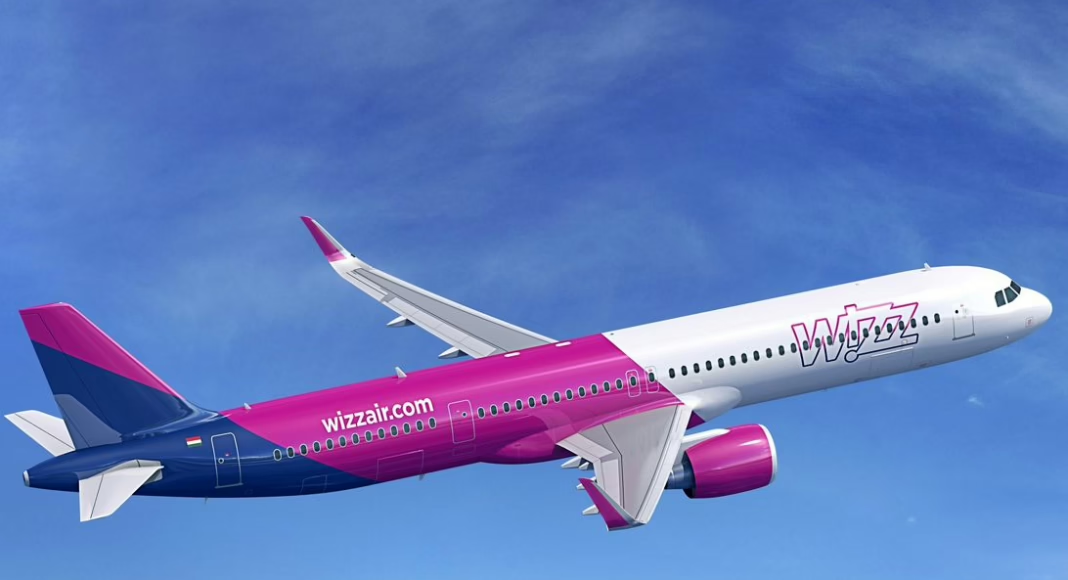Budget carrier’s decarbonization strategy puts SAF at center while urging government action on production and costs
Wizz Air is staking its climate future on sustainable aviation fuel (SAF), making it the cornerstone of an ambitious net-zero emissions strategy that sets the Central European budget carrier apart from competitors.
The airline revealed that SAF will account for 53% of its decarbonization efforts as it expressed growing concern that the aviation industry’s collective push toward net-zero emissions by 2050 is veering off track.
Moynihan expressed concern about the insufficient rate of progress in aviation sustainability efforts, emphasizing the urgent need for concrete action rather than merely setting ambitious goals.”We need action, not just ambition. That’s why we’re calling on governments, regulators, and the fuel industry to wake up to the reality of aviation’s transition and start delivering the changes that will make net-zero possible.”
Wizz Air’s decarbonization roadmap diverges from competitors by prioritizing proven technologies over what it describes as “unproven technologies and offsetting.” According to the airline, its strategy “offers a realistic path” by concentrating on three main pillars: sustainable fuel, aircraft technology advancements, and air traffic management modernization.
Beyond the majority contribution from sustainable fuels, the airline expects 21% of its emissions reductions to come from aircraft and engine technology improvements, while fleet renewal will contribute an additional 7%.
The remaining reductions will come from air traffic control reform (4%), operational efficiencies (2%), and carbon removal technologies (13%).
Despite making SAF the “biggest lever” in its climate strategy, Wizz Air acknowledged significant challenges with the alternative fuel. Current production remains limited and prices remain uncompetitive for a budget carrier that operates on thin margins.
The airline is urging governments to scale up SAF production and introduce incentives to reduce the price gap with conventional jet fuel. Without these changes, the airline suggests the industry’s net-zero ambitions may be unattainable.
Wizz Air framed the need for government action not merely as an environmental concern but as a “strategic necessity” for the European aviation sector’s long-term competitiveness, sustainability and resilience.
The airline’s emphasis on SAF comes as the aviation industry faces increasing scrutiny over its environmental impact. Airlines worldwide have pledged to reach net-zero carbon emissions by 2050, but many paths to this goal rely heavily on technologies that have yet to be developed or scaled to commercial viability.

Key Takeaways
- Wizz Air’s net-zero strategy relies on sustainable aviation fuel for 53% of its planned emissions reductions.
- The airline warns that the aviation industry is falling behind on climate goals.
- Aircraft and engine technology improvements will contribute 21% to emissions reductions.
- The carrier is calling for government action to scale up SAF production and reduce costs.
- Wizz Air describes its approach as more realistic than competitors’ strategies.



